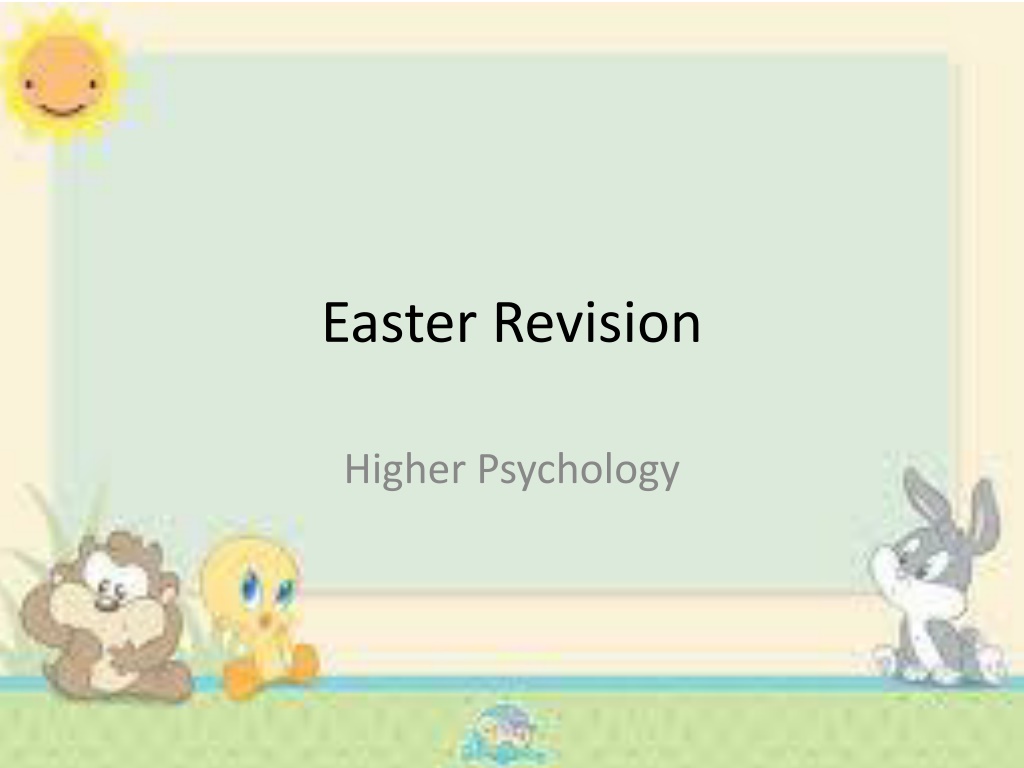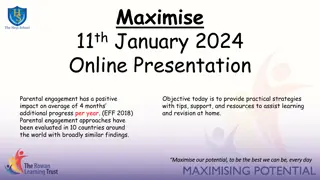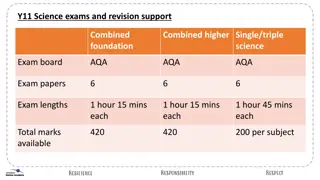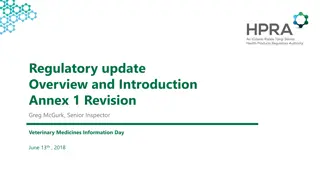Easter Revision Higher Psychology
SQA Guidelines on Research Methods, Sleep Disorders & Treatments, Psychological Theories on Sleep, Factors affecting sleep, and Atypical Depression with various Psychological Approaches and Theories.
Download Presentation

Please find below an Image/Link to download the presentation.
The content on the website is provided AS IS for your information and personal use only. It may not be sold, licensed, or shared on other websites without obtaining consent from the author.If you encounter any issues during the download, it is possible that the publisher has removed the file from their server.
You are allowed to download the files provided on this website for personal or commercial use, subject to the condition that they are used lawfully. All files are the property of their respective owners.
The content on the website is provided AS IS for your information and personal use only. It may not be sold, licensed, or shared on other websites without obtaining consent from the author.
E N D
Presentation Transcript
Easter Revision Higher Psychology
SQA Guidelines Research Methods the stages of the research process ethical issues in terms of current British Psychological Society guidance research methods which must include: field experiment, laboratory experiment, natural experiment, participant and non-participant observation, case study, interview, questionnaire variables: dependent, independent and extraneous sampling methods which must include: opportunity, random, self-selection, systematic, quota and stratified descriptive statistics and their interpretation: mean, median, mode and range and their calculation from a set of data
Sleep, Dreams and Sleeping Disorders Sleep disorders Explain two sleep disorders and their treatment. Psychological approaches biological approach which must include: the role of the brain in sleep; circadian rhythms; non-REM and REM sleep and dreaming cognitive approach which must include: sleep to facilitate information processing; sleep schemas; thought processes including irrational thoughts or beliefs in relation to sleep and dreams one additional approach of choice that explains sleep and dreams using a minimum of three key concepts/features (Psychoanalysis)
Sleep, Dreams and Sleeping Disorders Factors affecting sleep impact of drugs impact of light Theories At least two relevant psychological theories must be covered. These must include: Oswald (1966) Restoration theory of sleep Crick and Mitchison (1986) Reorganisational theory of dreaming Studies The aims, methods, results and conclusions of at least two relevant psychological studies must be covered. These must include: Dement, W. and Kleitman, N. (1957). The relation of eye movements during sleep to dream activity: an objective method for the study of dreaming. Journal of Experimental Psychology, 53, 339 46. Czeisler, C. A., Johnson, M. P., Duffy, J. F., Brown, E. N., Ronda, J. M. and Kronauer, R. E. (1990). Exposure to bright light and darkness to treat physiologic maladaptation to night work. New England Journal of Medicine 322, 1253 1259.
Individual Behaviour Optional Topic Atypical Depression Psychological approaches three approaches of choice which can be applied to show psychological understanding of the chosen topic using a minimum of three key concepts/features for each approach (Biological, Cognitive, Behaviourist and Psychoanalytic) Theories at least two theories relevant to psychological understanding of the chosen topic (theories as to causes of depression genetic, biochemical, schemas (Beck s Cognitive triad), Classical Conditioning, Operant conditioning, Social Learning Theory, id, ego and superego, unconscious conflict) Studies the aims, methods, results and conclusions of at least two research studies relevant to psychological understanding of the chosen topic
Conformity and Obedience types of conformity which must include: identification; compliance; internalisation factors affecting conformity which must include: normative influence; informational influence; social influence; individual factors; situational factors; cultural factors factors affecting obedience which must include: types of authority; perceived legitimate authority; socialisation; authoritarian parenting; autonomous and agentic levels of behaviour; situational factors strategies for resisting social pressure/coercion which must include: responsibility for own actions; moral reasoning and awareness of own values; questioning motives of others including advertisers and peer groups; disobedient models Mori, K, and Arai, M (2010) No need to fake it: Reproduction of the Asch experiment without confederates. International Journal of Psychology, 45 (5), 390 397. Milgram, S (1963) Behavioural Study of Obedience. Journal of Abnormal and Social Psychology, 67, 371 78 and relevant knowledge from Milgram s subsequent related studies.
Social Behaviour Optional topic. Psychological concepts and/or theories at least four concepts and/or theories of choice relevant to the chosen topic Studies the aims, methods, results and conclusions of at least two psychological research studies relevant to the chosen topic
Easter Revision Tasks 1. Organise your notes and mind maps in relation to the above guidelines. 2. Fill in any gaps you may have SCHOLAR. 3. Create flash cards remember you need names and dates for theories and conclusions not just for your key studies. 4. Re-write your glossary for research methods LEARN IT. 5. Try past paper questions SQA website.
Past Papers Research Methods Research methods past paper questions were given out prior to Christmas. Re-do these. You should find them easier. Marking schemes are on SQA website. I will give you older past paper questions from the old Higher this section didn t change so you will be able to answer these.
Past Papers Individual Behaviour 1. Choose an Individual Behaviour topic other than sleep, dreams and sleep disorders to answer (a) and (b). (a) Explain your chosen topic using two different approaches and/or theories. (12) (b) How does this chosen topic support individual wellbeing? Refer to research evidence in your answer. (8) Question 2 (a) Describe one sleep disorder that you have studied. (4) (b) (i) Describe one research study that relates to the topic of sleep, dreams and sleep disorder. (4) (ii) Evaluate the study that you described in part (i). (4) (c) Explain sleep and dreams using the cognitive approach. (8)
Past Papers Social Behaviour 1. (a) Analyse one research study related to conformity. (8) (b) Choose a Social Behaviour topic other than conformity and obedience. Explain your chosen topic using two psychological concepts and/or theories. (12) 2 (a) Describe two strategies for resisting social pressure/coercion. (8) (b) Explain two factors that can affect conformity. (4) (c) Evaluate the Mori, K and Arai, M (2010) study of conformity. (8)
Other Questions The SQA choose their questions from the guidelines set out in the first few slides of this powerpoint. It is important that you are fully familiar with these guidelines and are prepared to answer on ANY element.



























